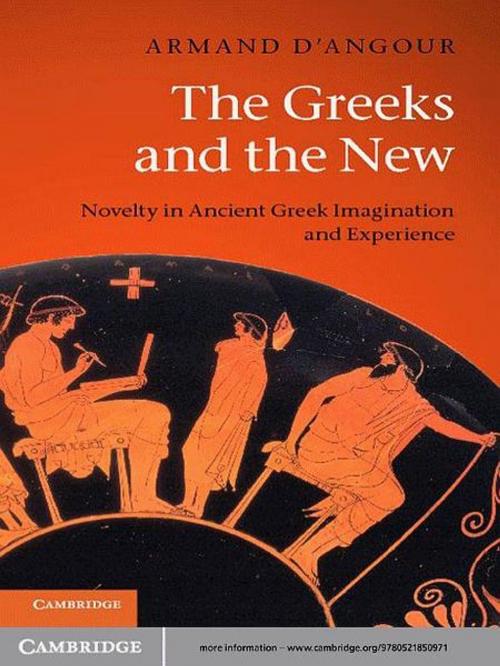The Greeks and the New
Novelty in Ancient Greek Imagination and Experience
Nonfiction, Religion & Spirituality, Philosophy, Social & Cultural Studies, Social Science, History| Author: | Armand D'Angour | ISBN: | 9781139139700 |
| Publisher: | Cambridge University Press | Publication: | September 15, 2011 |
| Imprint: | Cambridge University Press | Language: | English |
| Author: | Armand D'Angour |
| ISBN: | 9781139139700 |
| Publisher: | Cambridge University Press |
| Publication: | September 15, 2011 |
| Imprint: | Cambridge University Press |
| Language: | English |
The Greeks have long been regarded as innovators across a wide range of fields in literature, culture, philosophy, politics and science. However, little attention has been paid to how they thought and felt about novelty and innovation itself, and to relating this to the forces of traditionalism and conservatism which were also present across all the various societies within ancient Greece. What inspired the Greeks to embark on their unique and enduring innovations? How did they think and feel about the new? This book represents the first serious attempt to address these issues, and deals with the phenomenon across all periods and areas of classical Greek history and thought. Each chapter concentrates on a different area of culture or thought, while the book as a whole argues that much of the impulse towards innovation came from the life of the polis which provided its setting.
The Greeks have long been regarded as innovators across a wide range of fields in literature, culture, philosophy, politics and science. However, little attention has been paid to how they thought and felt about novelty and innovation itself, and to relating this to the forces of traditionalism and conservatism which were also present across all the various societies within ancient Greece. What inspired the Greeks to embark on their unique and enduring innovations? How did they think and feel about the new? This book represents the first serious attempt to address these issues, and deals with the phenomenon across all periods and areas of classical Greek history and thought. Each chapter concentrates on a different area of culture or thought, while the book as a whole argues that much of the impulse towards innovation came from the life of the polis which provided its setting.















